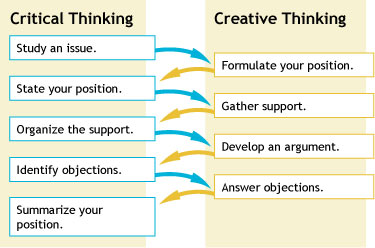In a New York
Times article, titled “What Should Colleges Teach? Part 3,” the author, Stanley
Fish, argues a claim that colleges need to focus on teaching students sentences
structure because he believes and has noticed that those [students] coming from
traditional high schools lack the ability to put together good sentences. He
also claims that colleges need to get away from allowing students to write in their
own language. Fish believes that allowing students to write in their own
language will only hurt them in the future when the student will have to write
in an educated, scholarly manor.
I agree with Fish’s claim that students
should not write in their own language, if a student gets a job that revolves
around communication between co-workers, the student will not be able to use
their own language without risking their employment status. I can also agree
with the second claim that student’s should be taught sentence structure. I
know a couple friends who struggle putting together sentences. In fact, they’ve
always struggled with sentences and it causes problems when writing essays,
which of course hurt their grade. Now teaching sentence structure and stopping
students from using their own language are a good places to start teaching but
it is my belief that colleges should also teach students how to build
arguments.
In college, it seems like students spend
more time arguing claims than doing anything else. Therefore, students should
be taught the correct way to build their arguments.
 |
| In this photo, from Thoughtful Learning's blog, every step to building an argument is laid out. |
Arguments are made to further a conversation. A conversation cannot begin without a claim. A claim cannot not be made without information. Students must do research into a topic to make a claim, whether it is from word of mouth or from studies. It is the only way a claim and conversation can start. After a claim is formed and presented, students must support that claim with evidence to why their claim is true.
Supporting a claim is probably the second
most, if not the first, important step to arguing. Backing a claim makes readers believe that the author of a piece has done their research and understands what they are
talking about. The reader thinks this because supporting claims involves
bringing in secondary voices (of course these secondary voices should only
agree with the presented claim) which one can only find through research. After
supporting the claim, the last step is to get the reader to believe why the
claim is correct.
The key to an argument is to make others
agree with a claim. That is not something that just happens. Authors use rhetorical devices to emphasize certain areas of their claim to get the reader to think a certain way (to learn more about the importance and use of rhetorical devices, see David Hood's blog "Rhetoric and Rhetorical Devices").
If the author fails to lure the reader to agree with their claim or have not made the reader thinking about what was presented, they have failed their purpose and the argument is presented for naught.
 |
| The repetition of "We shall" is a rhetorical device used to influence the feeling of patriotism within a country. |
If the author fails to lure the reader to agree with their claim or have not made the reader thinking about what was presented, they have failed their purpose and the argument is presented for naught.
Again, I agree with Fish’s claim that
students should be taught the proper English language and should be taught how
to properly structure a sentence. At the same time, colleges should teach
students how to properly form arguments. By having all of these necessary tools
in the students’ “back pocket,” I believe that students will be prepared for
all challenges that they face in writing. Thing is, these tools must be taught
to students in order for them to acquire the ability to use them. Right now,
colleges are doing a pretty good job to get by, but just imagine what a college
essay would look like if all knew how to use these tools correctly.
No comments:
Post a Comment